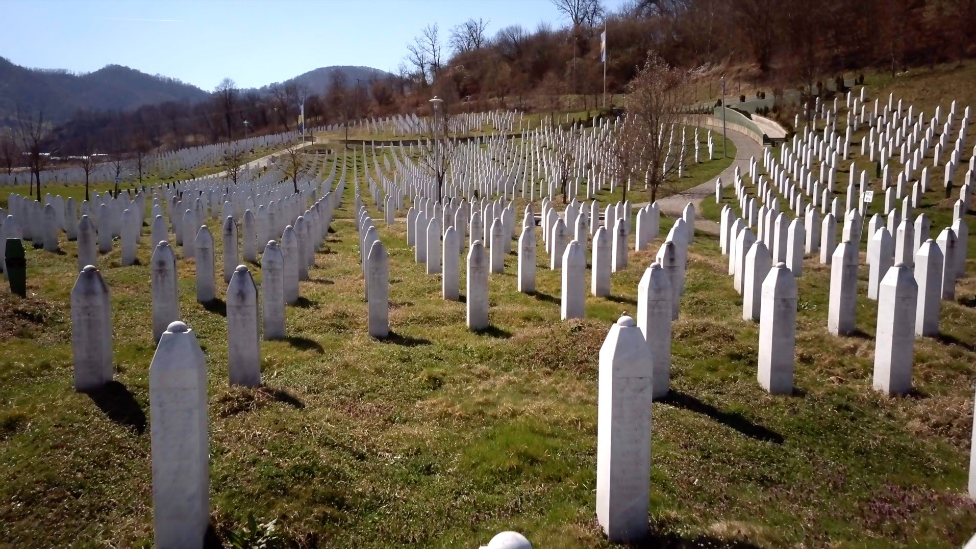Ratko Mladic verdict fails to ease pain in Bosnia
- Published
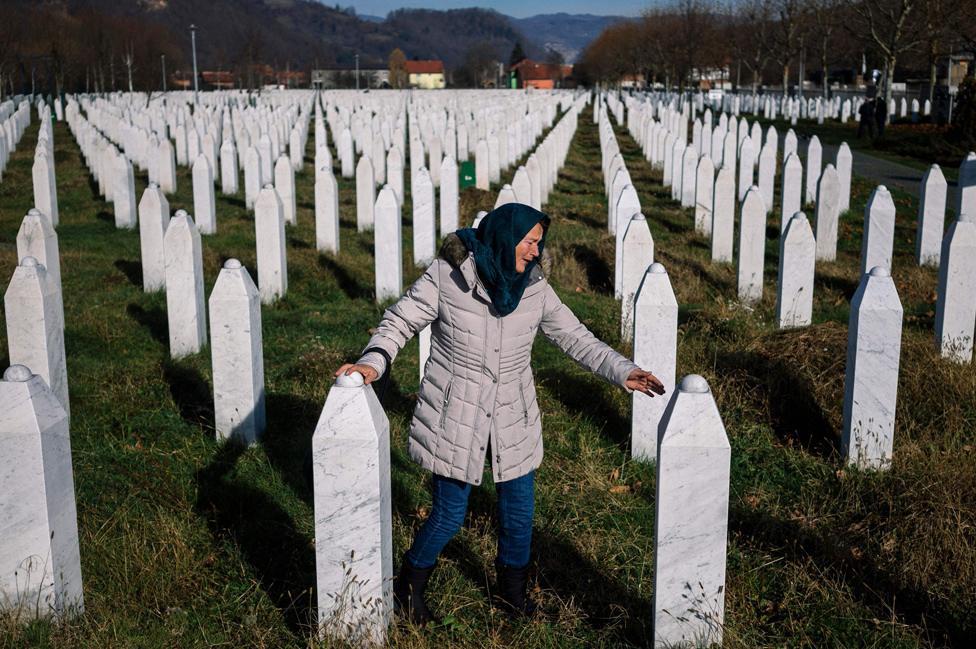
A Srebrenica massacre victim's relative mourns in the cemetery
Ratko Mladic terrorised the people of Sarajevo for almost four years, deliberately targeting civilians with snipers and mortar attacks.
But no cheers could be heard on the streets of the Bosnian capital when news broke that the commander of Bosnian Serb forces in the 1990s had been sentenced to life imprisonment by the UN tribunal in The Hague.
"The verdict won't make any changes," said Resad Trbonja, a native of Sarajevo who became a teenage soldier to defend the city during the siege, that left more than 10,000 people dead.
Now he works for the UK-based campaign organisation Remember Srebrenica.
"What we need to fight now is the legacy of the war - we're still living it. The weapons are down but the war is still going on.
"The only people who gain from the situation we are stuck in are the local politicians - they keep the legacy of war alive to maintain their power."
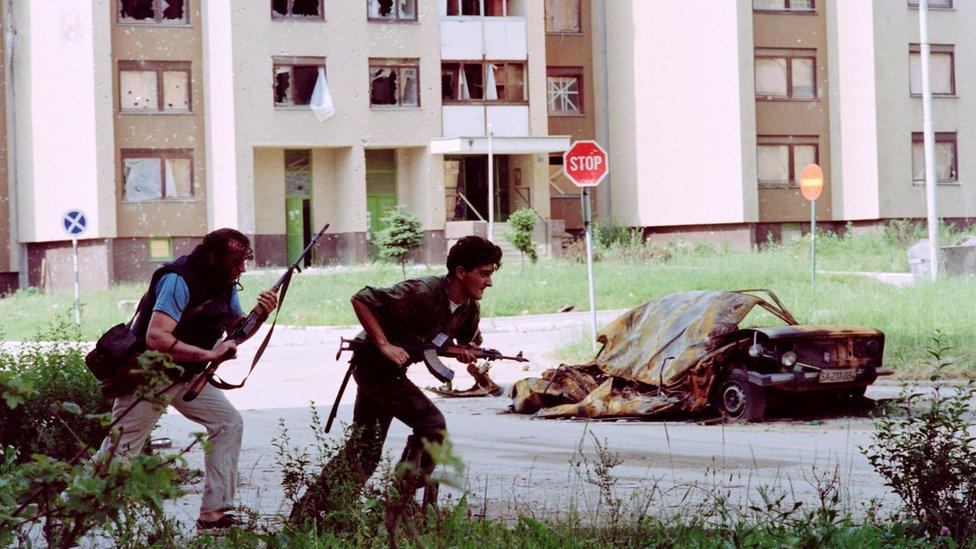
July 1992: Bosniak soldiers were outgunned by Serb forces in Sarajevo
At least Hasan Nuhanovic could take comfort that Mladic was found guilty of ordering genocide in his hometown, Srebrenica.
Mr Nuhanovic lost his father, mother and younger brother in the massacre - and designed the memorial centre opposite the cemetery, where thousands of victims are buried.
More than 7,000 Bosniak (Bosnian Muslim) men and boys were murdered at sites around Srebrenica in 1995.
While he welcomed the verdict, Mr Nuhanovic doubted it would reduce the enduring ethnic divisions which have crippled Bosnia since the end of the war.
"The question is: when will this politically-hostile environment change? I hope Bosnian Serbs and Serbs in the region will understand better now what Ratko Mladic did to us - to what extent it has disrupted our lives."
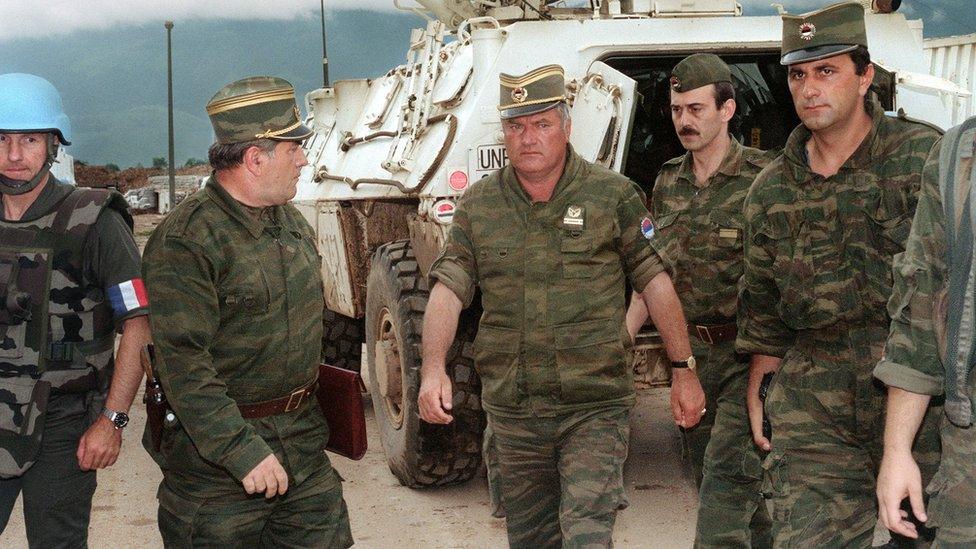
Gen Mladic (C) arriving in Sarajevo in August 1993
The reaction of Bosnia's ethnic-Serb politicians shows why reconciliation remains a remote prospect.
The current mayor of Srebrenica, Mladen Grujicic, said the verdict "confirmed the tribunal was made to prosecute only Serbs," while Republika Srpska's president, Milorad Dodik, called Mladic "a hero".
- Published22 November 2017
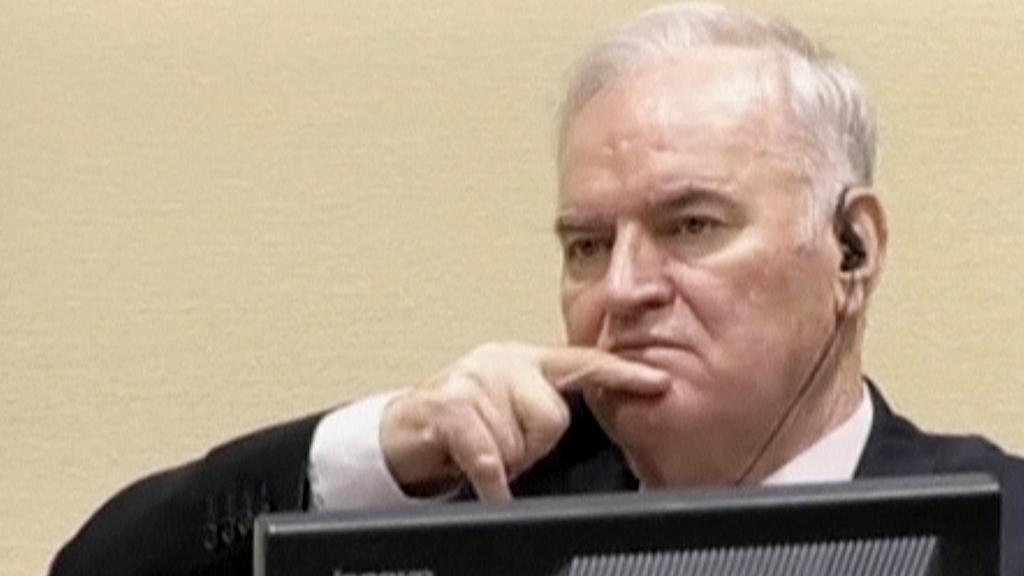
- Published22 November 2017
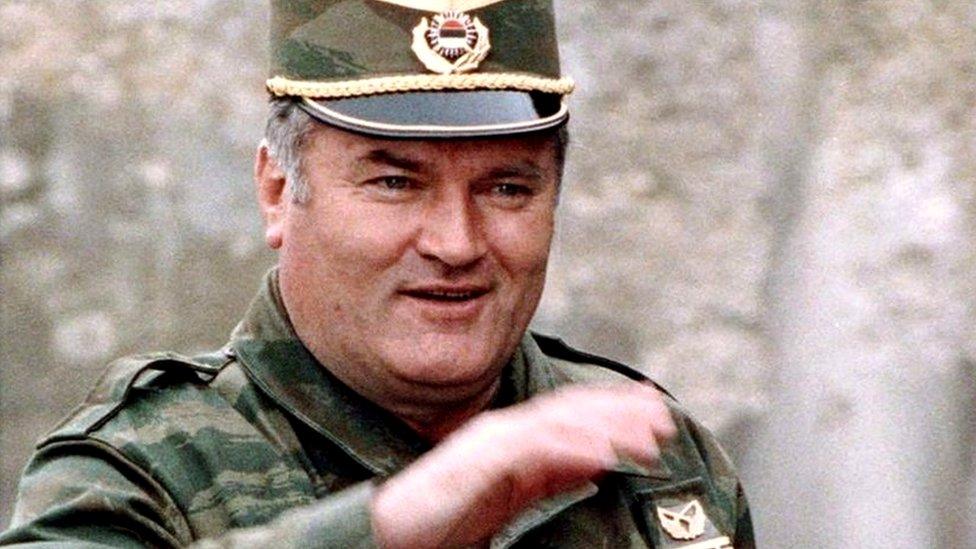
- Published22 November 2017
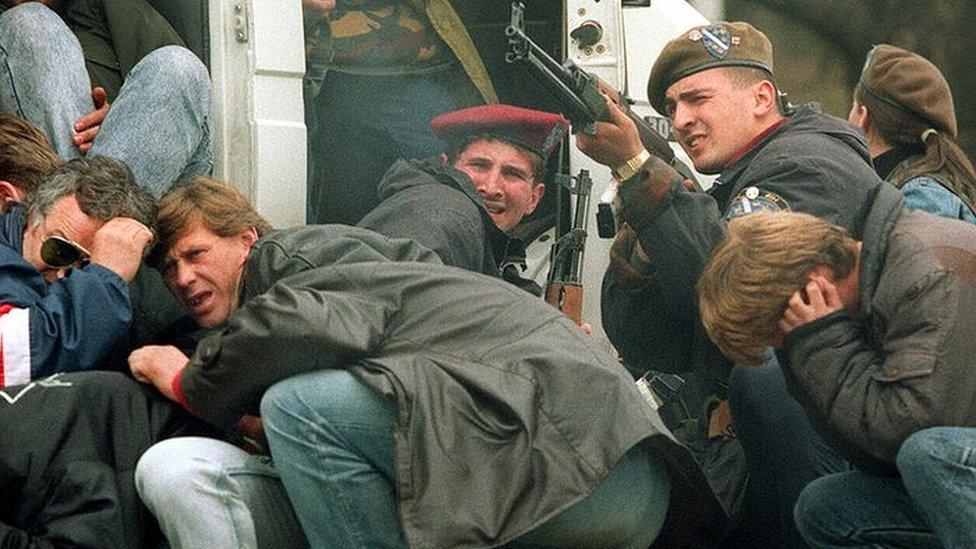
- Published16 November 2017
